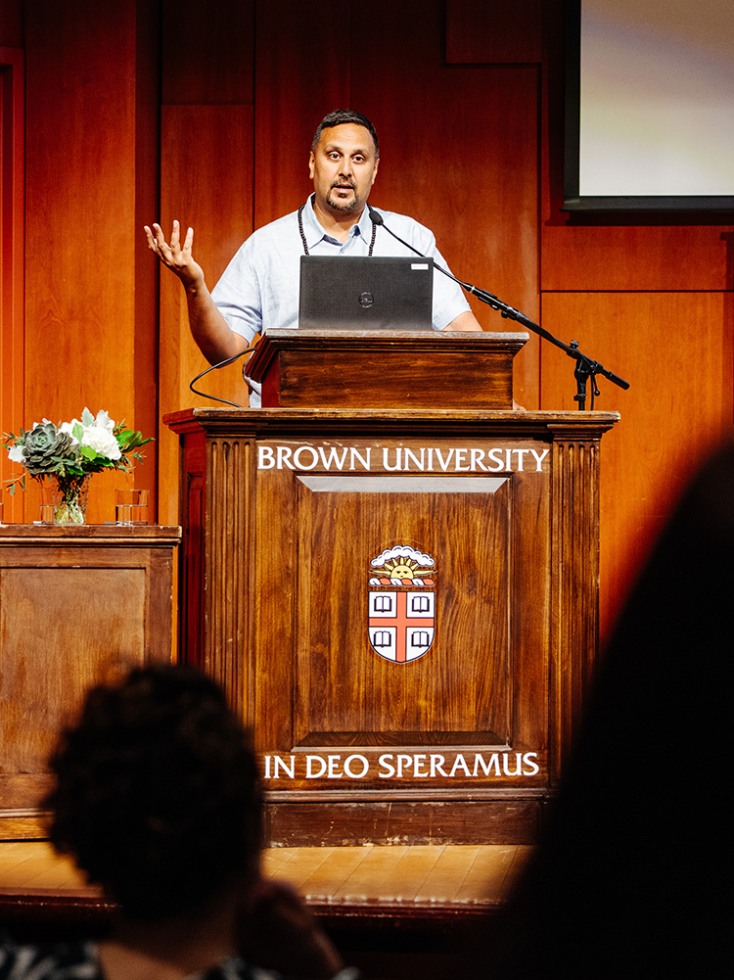PROVIDENCE, R.I. [Brown University] — In the course of his visits to college campuses across the nation for more than 15 years, Amer F. Ahmed’s greatest challenges to confronting Islamophobia have been a fundamental misunderstanding of Islam and pervasive stereotypes.
The solution to addressing Islamophobia — and all forms of discrimination, for that matter — is to engage in learning and dialogue with people who have differing beliefs, he asserted.
“No matter the way you show up in an issue, there’s a lot of context out there to gain…” Ahmed said. “I would strongly encourage you to encourage not just yourself, but others, to engage in learning more context, even if you believe you’re on the right side of the issue.”
The imperative to advance knowledge of the social, cultural, political and historical context of Islam was among Ahmed’s key calls-to-action during a Monday, April 29, address at Brown University titled “Addressing Islamophobia: Dispelling Myths to Break Down Barriers.”
Ahmed, who was born and raised in Ohio as the son of Indian Muslim immigrants, works at the University of Vermont as vice provost for diversity, equity and inclusion and chief diversity officer — one of only a handful of Muslim chief diversity officers in the country, he noted. During his talk at Brown, he began by offering a “basic level setting” of Muslim history and a quick array of statistics, noting that most followers of Islam are not Arab, that there are large populations of Christian and Jewish Arabs, and that Islam does not espouse violence.
“It’s important to make a distinction between what a religion teaches and what people do,” Ahmed said. “People do all different kinds of things in the name of religion.”
There is also “this conflation of Arab and Muslim as if they’re the same thing,” said Ahmed, who shared that 20% of Palestinian people are Christian; half of Lebanese people are Christian; 10% of Egyptians are Christian; and 14% of people in Syria and Jordan are Christian. “The largest Muslim population in the world is in Indonesia. Arabs are only 18-20% of Muslims in the whole world.”
